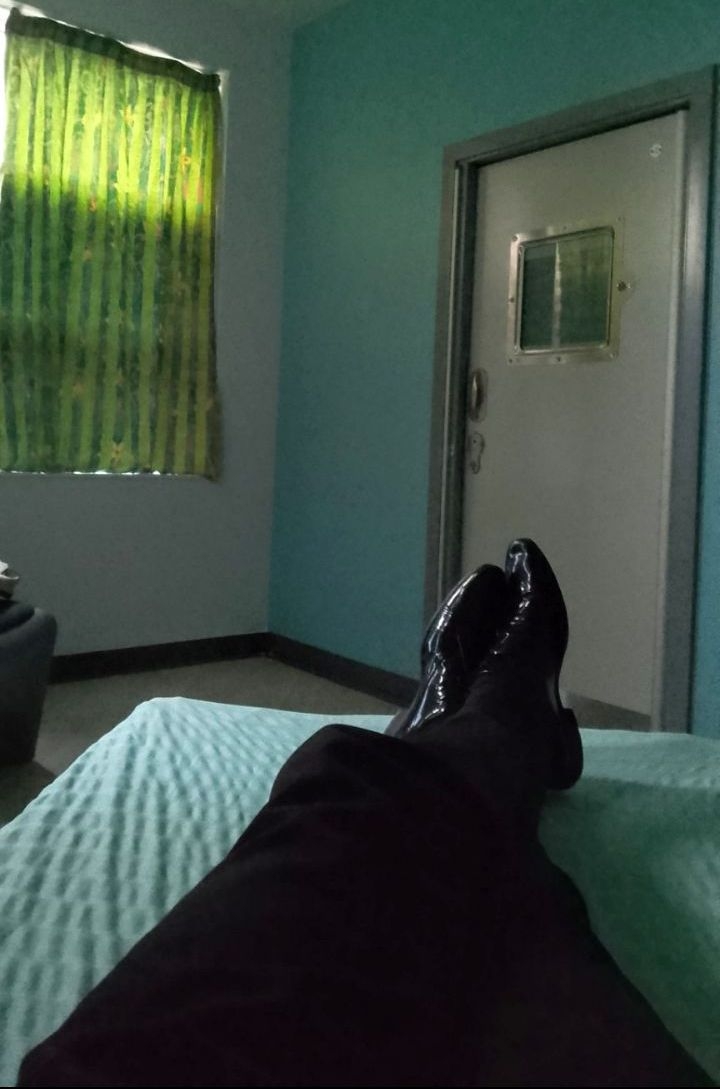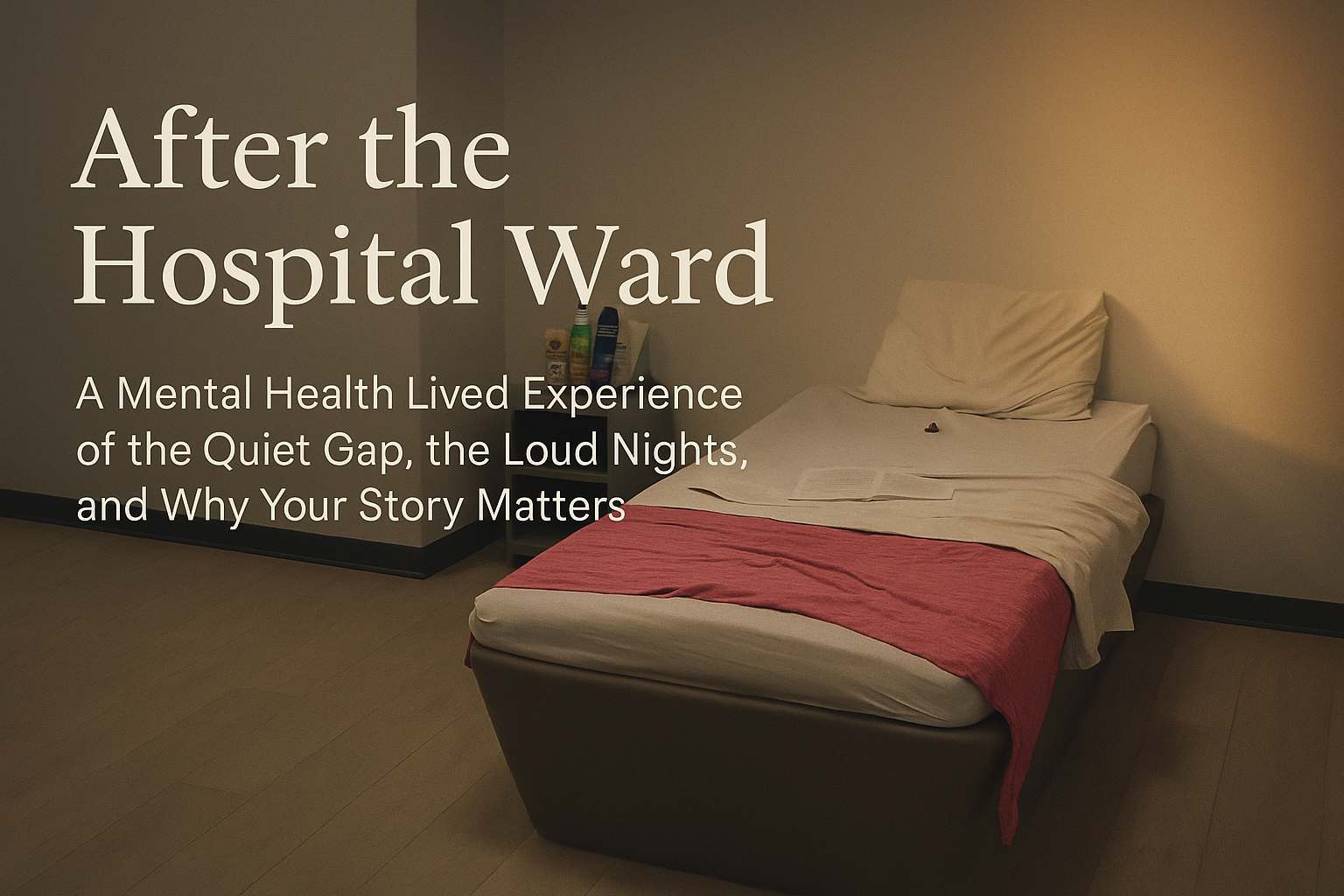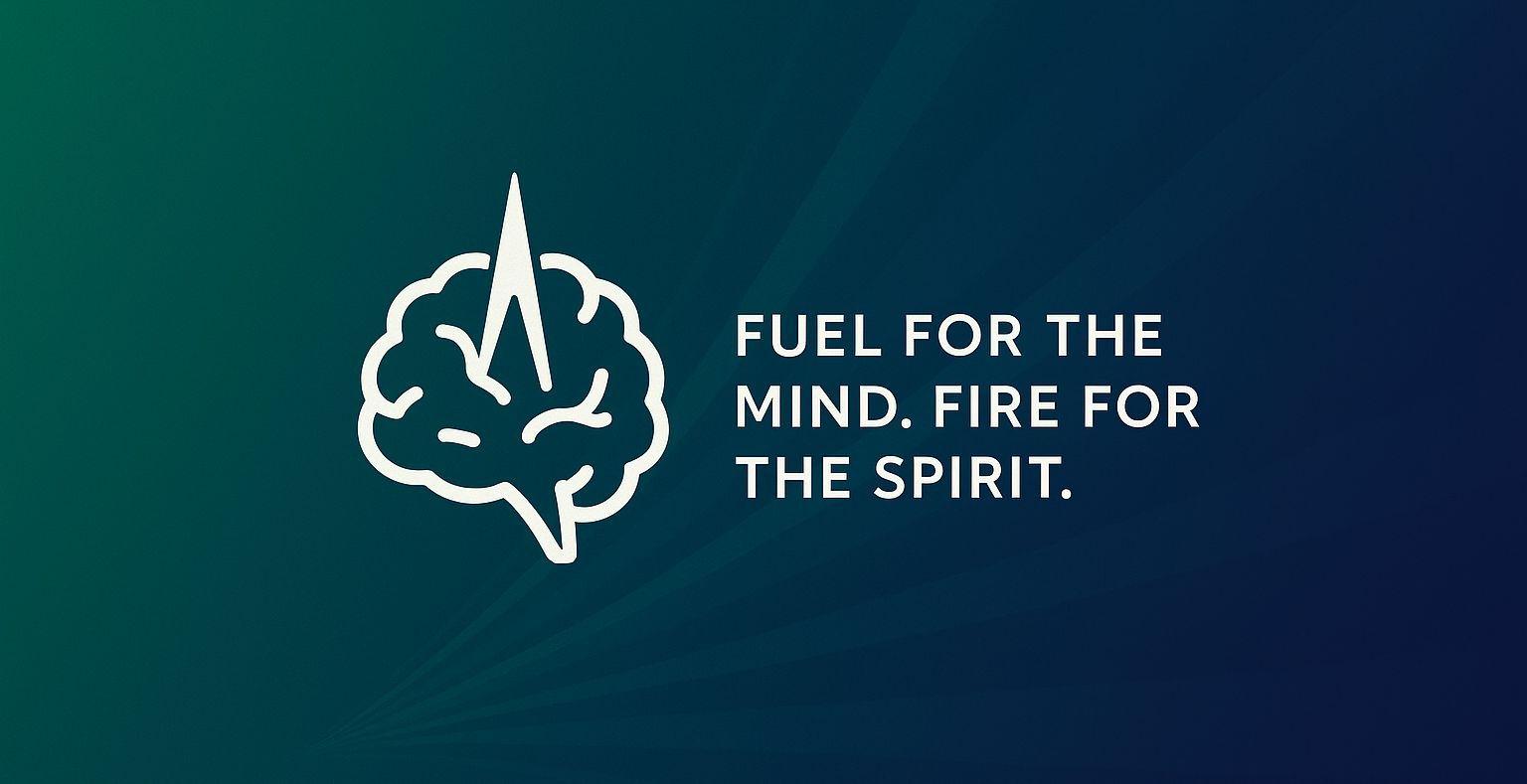
Please note: this story contains references to mental illness, hospitalisation, and suicidal thoughts. Reader discretion advised.
Before I begin, let me say this clearly: this isn’t about pity, applause, or making myself look brave. I’m not a hero, and I’m not fishing for validation. I’m only grateful, deep in my bones, to still be here to tell a story that too many men, and women, never got the chance to tell.
International Men’s Day, marked on 19th November, is about recognising the realities men face — the pressures, the silence, the expectations, and the toll they can take. It’s a day to champion positive role models, encourage honest conversations, and shine a light on men’s mental health without judgement or bravado. At its heart, it’s a reminder that strength isn’t about holding everything in; it’s about showing up, speaking honestly, and supporting one another with dignity and respect.
It’s been eight months since I walked out of Holywell Hospital in Antrim. And today, on International Men’s Day 2025, I’m finally ready to talk about what recovery really means, what it really costs and what it truly takes to keep going when your own mind has turned against you.
This time last year, I was on fire. Not the good kind. The kind of fire you mistake for drive — ambition — purpose. I was burning from the inside out, and I thought it was passion. It wasn’t. It was destroyed with a suit on.
People came to me for help. That was my role. The steady lad, the organiser, the one who could walk into chaos and settle a room with a calm tone and a straight tie. I was the “sort-it-out” fella, the one people leaned on.
Eighteen years as a chef, eight as a funeral director. Both jobs teach you about pressure — about keeping your face straight while the world around you unravels. I could survive impossible nights without blinking. I thought that made me strong. Turns out, it made me numb.
You learn a dangerous lesson when you live like that, that pain can be managed by control, that chaos can be hidden by order. But life, as I discovered, doesn’t care about your systems. It’ll strip you bare. And when it does, you learn that what you called strength was often just avoidance dressed up in a uniform.
No one, least of all me, expected that I’d end up sectioned under the Mental Health Act. Why would they? Why would I? I didn’t fit the character I’d built. But life doesn’t care about characters. It doesn’t knock politely. It kicks the door in.
It didn’t start with despair. It started with a sound. October 2021. A clang. A mistake — not mine, not anyone’s fault exactly, just one of those moments that hits harder than you think it should. I won’t go into details, some things belong to the privacy of work, but in my world of funerals, dignity is everything. When dignity slips, even for a second, something inside you breaks.
You see, when your job is holding space for grief, you start to believe you’re immune to it. You think, I’ve seen the worst. Nothing can shake me now. But you’re wrong. Everyone has a breaking point. Mine came quietly, like a hairline crack in glass. I ignored it. Straight tie. Neat uniform. Smile fixed. Pretend everything’s fine.
Pretending, by the way, is one of the most destructive talents a man can have. The better you get at it, the longer it takes anyone to realise you’re falling apart.
Nightmares started first. The same image, over and over. My chest tightened, heart pounding at 3am. I told myself it was just stress. Just exhaustion. Just pressure. I renamed trauma until it sounded polite enough to ignore.
Men like me are experts at re-branding our own breakdowns.
There are no medals for pride, and no thanks for stigma. All you get is silence, damage, and a longer road back.
By 2022, there were two Michael's. The one everyone saw, calm, reliable, polite, and the one nobody saw, wired, sleepless, twitching, circling thoughts like vultures.
Routine became my disguise. Wake after an hour’s sleep. Shave. Shirt ironed. Tie straight. Smile. Work. Avoid thinking. Repeat.
It worked, badly, until it didn’t.
By 2024, the wallpaper in my mind had peeled away. I began seeing patterns where there were none. Shadows meant something. Numbers meant something. Every coincidence was a sign. I was sure I was being watched. Phones and laptops went out the window, literally, but fear stayed put. I fizzed like water on a hot pan: loud, erratic, uncontrollable.
Here’s the terrifying part, it felt logical. Mania doesn’t arrive with a warning label. It comes dressed as enlightenment. You don’t feel mad. You feel alive. You feel right. I wrote timelines, connected dots that weren’t dots. Sent carefully worded emails to journalists and officials. To an outsider, I looked organised. Inside, I was in free fall.
My family clocked the warning signs long before I even relisted anything was wrong. They went to the GP, the GP referred me to the crisis team, and suddenly everything was moving at a pace I couldn’t keep up with. I still remember their faces - that mix of love and sheer panic, both wrestling for the steering wheel.
Two assessments later, it was obvious to everyone but me that I wasn’t going home. I was still telling myself I’d be back at work by the evening. Instead, I was detained under the Mental Health Act. I didn’t understand the seriousness of it. Not even close.
We always hear about A&E in the main hospital — the busy corridors, the noise, the rush. But we never hear about the crisis unit. The locked door. The quiet hum. The place where lives don’t fall apart — they get held together just long enough to stop the free fall.
The men’s ICU ward was the NHS’s attempt at a high-security retreat — except it had all the charm of a badly designed prison cell. Lockdown. Constant observation. A welcome pack that consisted of one pair of pyjamas, a paper cup, and the dreadful realisation that my life had just gone completely sideways.
No phone. No shoelaces. No dignity.
Asking for a razor felt like asking for a loaded weapon. Even your toothbrush needed clearance.
Everything was plastic — plates, cutlery, smiles. All engineered to withstand a meltdown. Every move logged. Every hour assessed. The clock on the wall ticked louder than my thoughts, each second mocking me: time’s moving, Michael was going nowhere.

After five days, I was moved to a slightly less secure ward. Think fewer locks, same cardboard tea.
It took another eight weeks before anything inside me shifted. Eight weeks before the penny finally dropped. Before I realised - with absolute disbelief - that I’d been genuinely unwell. That’s when the self-trust gave way completely, collapsing like a load of stones dropped straight down a well.
There’s a particular sound a locked hospital door makes. Heavy. Final. And if your humour’s dark enough, faintly ridiculous.
My manic brain was convinced there’d been a clerical error. I remember thinking, genuinely: Not me. I’m fine. I’m the sensible one here.
That’s the comedy and cruelty of mania, you’re convinced you’ve cracked some cosmic secret while everyone else quietly watches you lose touch with reality.
So when the consultant told me, very calmly, that I was “very, very unwell,” I laughed. Not because I thought they were wrong — because I couldn’t see what they saw. “Physically? I’ve never felt better,” I said, baffled they couldn’t recognise my brilliance.

Holywell wasn’t dramatic. It was beige. Everything beige. Quiet, but never peaceful. A waiting-room version of limbo. Tea that tasted like damp cardboard. Doors that clicked shut with the precision of a bank vault.
It wasn’t the chaos of the crisis that changed me — it was the monotony. The standstill. The hours spent in a plastic chair, staring at a wall, slowly letting someone else hold you up because you can’t steady yourself yet.
The staff saved me. Not with big speeches or dramatic moments, but with small, steady acts of kindness. Nurses, HCAs, doctors — all quietly doing the work that keeps people alive. They didn’t just treat me; they met me exactly where I was, even on days when I had absolutely no idea where that was.
They held the line until I was able to take it back into my own hands.
Then came the hangover from hell. Not from drinking - from life. Leaving hospital feels like being spat back into a world that’s suddenly too loud, too fast, too bright. Inside the ward, time freezes. Outside, it sprints. Bills. Arrears. Missed calls. Apologies you owe but don’t even know how to start. All the chaos you caused while unwell sits there waiting, like an unclaimed parcel stamped URGENT.
If my mind had a Twitter bio then, it would’ve said: Currently rebooting. Managing debts, shame, intrusive thoughts, and a personality that doesn’t feel like mine. Please send coffee, patience, and a trained professional.
It was a hangover in the truest sense - like my soul had been rear-ended by a truck full of reality.
I stood in my own house and everything felt slightly wrong. My voice didn’t sound like mine. My phone felt like it belonged to someone else. I didn’t know if I still had a job, a licence, or any friends left who hadn’t quietly blocked me.
“It’s okay not to be okay” felt like a slogan made by someone who’s never stared at the ceiling at 4am, counting cracks and wondering how the hell their life had gone so spectacularly sideways.
I didn’t feel okay. I didn’t feel anything.I wanted the bed to swallow me. Stillness felt easier than existing. And the creditors? They don’t send get-well-soon cards — they just send reminders.
Like so many of us, I’d taken everything good for granted - my mind, my health, the quiet stability I assumed was permanent.
That’s the bit no-one warns you about: recovery. Hospitals keep you alive. Medication steadies you.
But rebuilding your actual life?That’s on you. And that’s the real climb.
This is the most dangerous point in recovery, You get two choices: end it or face it. And I mean that without drama.
Here’s the truth I learned the hard way: ending your story doesn’t stop the pain.It just hands it to someone else.It leaves behind silence, questions, and a headstone carved with what if's?

My recovery didn’t happen in the hospital. It started the day I came home. The small, humiliating steps. Phoning a creditor. Opening one letter without bolting. Cooking something for myself. Ending a relationship that had already broken under the strain. Learning to trust my own mind again, gently, like approaching a frightened animal.
Eight months on, I’m steady. Not perfect. Not cured. But steady. I’ve got a smaller circle. Better boundaries. A slower pace. I don’t trust adrenaline anymore, I trust honesty.
Shame almost silenced me. I was terrified of being defined by my worst chapter: the mad one, the sectioned one, the boy who lost it. But silence is just another kind of illness. It festers. It isolates.
When I finally began to tell people, someone said, “I can understand now how fragile your mind is.” I smiled politely. But what I wanted to say was: It’s not fragility, it’s proof I survived.
If you’re still reading this, you probably need to hear something.
Physical illness gets sympathy. Mental illness gets whispers. But every person has mental health, whether they talk about it or not. Whether they’re proud of it or afraid of it.
As someone who’s seen death up close, as a funeral director and now as a patient - I’ve seen every side of mental health. The quiet wards are full of people who look ordinary. The families who stand by graves asking why. The friends who saw the signs too late.
I’ve stood beside too many coffins wondering what might have changed if someone had just asked the right question at the right time. Or if the person buried had found the words to say, I’m not okay.
So here’s mine.
I’m no therapist or doctor - just someone who’s lived through the kind of storm that nearly took everything from me.
To the father who’s lost a son: I’m so deeply sorry. Nothing I write will ever touch the size of that pain, but I hope this gives you even a flicker of comfort - they weren’t alone, and you were never at fault. Some battles happen quietly inside a mind that’s already exhausted.
To the man lying awake at 3am, staring at the ceiling, trying to work out how far gone he is or how he’s going to face the consequences - hear this clearly: it’s your mind that’s unwell, not your character, not your soul. You’re still in there, even if you feel buried under your own thoughts.
To the woman watching someone she loves disappear behind his own eyes - keep showing up. He might not respond, might not look present, might not be able to meet you where you are, but trust me, he hears you. Get him help, and get yourself support too. You’re both in the storm, and that matters more than people realise.
Your mind will try to convince you to keep quiet. It’ll whisper that you’re too far gone, too messy, too much trouble. It’ll tell you to keep the shame hidden, to push through, to pretend.
But that voice lies. Every single time.
Whatever you’re facing - however dark, however confusing - it’s survivable. There are people who’ve crawled through the same fire and come out standing. People who care more than you think. People who won’t look at you like a problem to fix, but a human being trying to stay afloat.
And yes - there will always be those who gossip, judge, or twist the story. Let them. Their noise is about their own fear, not your truth.
Don’t wait for things to get catastrophic. Don’t wait for silence. Don’t let pride, fear, or other people’s opinions write your ending for you.
If the only strength you have today is to whisper, “Something isn’t right with me,” that’s not weakness. That’s the start of getting your life back.
And it’s enough.
That’s the beginning.
I'm telling this story because I want people to live. Because every life saved is another family spared the agony of unanswered questions. Because no one benefits from another headstone bearing the name of someone who could have been helped.
Eight months ago, I was a man in a locked ward, staring at beige walls. Today, I’m a man standing on a different kind of stage, the world itself, telling the truth, because silence kills.
If you’re struggling, reach out. Call your GP. Speak to someone you trust. If you’re in danger, call 999 (or 112 from a mobile).No problem is too small. No life is too broken. Help is there.
Talking isn’t a weakness, it’s courage in its truest form.
But I didn’t make it back on my own. I owe that to my family, who held the line when I couldn’t hold myself, to my friends who kept calling even when I didn’t answer, to my work colleagues WJ O'Donnell and Sons Funeral Directors, who showed patience, kindness and understanding when I was unwell, and to the NHS staff who treated me not as a case, but as a person who’d simply lost his footing for a while.
You all steadied me when I was shaking, believed in me when I couldn’t trust my own mind, and gave me the chance to start again.
For that, I’m endlessly grateful… Thank You.

Mindspire Disclaimer: This blog is based on lived experience and personal reflection. It is not medical advice, professional guidance, or a substitute for clinical support. If you are struggling with your mental health — or supporting someone who is — please speak to your GP, your local NHS mental-health services, or a trusted helpline. In an emergency, always call 999 (or 112 from a mobile). Mindspire aims to offer understanding, not diagnosis; connection, not treatment. Every story shared is honest, human, and personal - but your circumstances may be different. If anything you read raises concern for your own wellbeing, please get help. Believe me... You are not alone! mindspireblogs@gmail.com
Subscribe or register today to discover more from DonegalLive.ie
Buy the e-paper of the Donegal Democrat, Donegal People's Press, Donegal Post and Inish Times here for instant access to Donegal's premier news titles.
Keep up with the latest news from Donegal with our daily newsletter featuring the most important stories of the day delivered to your inbox every evening at 5pm.